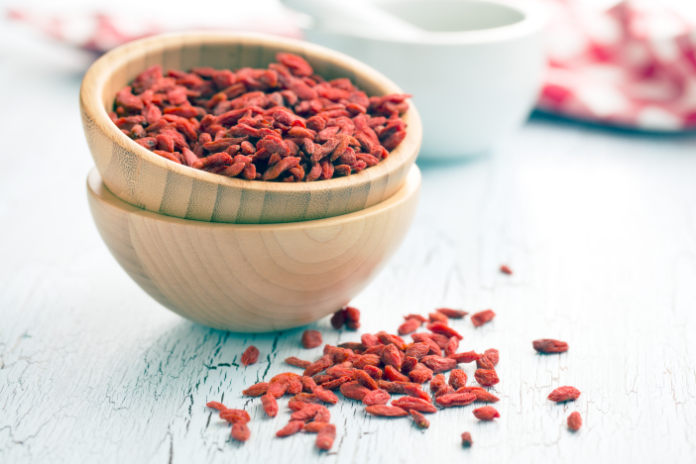Berberis vulgaris, or barberry, is a plant that produces sour red berries. The species is indigenous to Europe, Africa, and Asia, but it is now found all over the world. Its fruits have been used to cure stomach problems, infections, and skin concerns in traditional medicine for ages.
They contain numerous medicinal chemicals, the most notable of which is berberine. It is an antioxidant that may aid in the management of diabetes, the treatment of dental infections, and the treatment of acne.
Barberry Fruit Nutritional Value
One-fourth of a cup of Barberry Fruit contains the following nutrients:
- Calories- 89
- Protein- 1 gram
- Fat- 1 gram
- Carbs- 18 grams
- Fiber- 3 grams
- Vitamin C- 213% of the Daily Value
- Iron- 15% of the DV
9 Must Know Health Benefits of Barberry
Good With Nutrients
Barberries are nutrient-dense fruit. They’re high in carbohydrates, fiber, and vitamins, and minerals. The berries, in particular, are high in vitamin C, an antioxidant that may help protect cells from damage that can lead to heart attacks and tumors. They also contain zinc, manganese, and iron, all of which are chemical compounds that play important roles in disease prevention and defense.
Anthocyanins are natural pigments that may improve your brain and heart function among other things. They give the berries their vivid red color.
Contain Beneficial Plant Compounds
Berberine, a native plant component found in barberries, may be linked to a variety of health advantages. They belong to the alkaloid family of chemicals, which are recognized for their medicinal properties. It has been proven in studies to be a potent antioxidant, preventing cell damage done by reactive molecules known as free radicals.
Can Help in Managing Diabetes
Barberries, namely their berberine concentration, may aid in the management of diabetes. Diabetes is a chronic illness characterized by elevated blood sugar levels. Berberine has been proven to enhance the way your cells react to the neurotransmitter serotonin. The neurotransmitter serotonin controls the amount of sugar in the bloodstream. As a result, your blood sugar levels may be reduced.
May Help in Diarrhea
For ages, barberries were used to cure diarrhea. This is most likely due to its high berberine content. It prevents diarrhea by slowing the passage of excrement through the stomach by blocking specific receptors.
Can Protect Against Metabolic Syndrome
Consuming barberries may help you avoid metabolic syndrome. It a group of risk factors that raise your risk of cardiovascular disease and diabetes. Obesity, high blood sugar, insulin, triglyceride, and blood pressure are possible causes for this condition. They may be protected by barberries.
Good for Oral Health
Barberry extract has been found to reduce inflammation in glass vials. This is most likely due to berberine’s anti-inflammatory properties. As a result, it might aid in the treatment of inflammatory dental disorders such as gingivitis. It is characterized by plaque accumulation, swelling, and inflammation of the gums.
Can Help in Cancer Risks
Barberries may have anticancer properties in multiple distinct ways, all of which are linked to berberine. Berberine may help combat underlying oxidative stress linked to cancer growth since it is an antioxidant. Berberine may also cause cancer cell death and limit cancer cell multiplication. It may inhibit enzymes associated with cancer cell life cycles.
Can Help Fight Acne
Acne, a skin ailment characterized by inflammatory bumps and blemishes, may be helped by barberries. Berberine and other chemicals found in barberries may help combat acne-related inflammation and illnesses.
Good Addition to Diet
Barberries have a tangy, somewhat sweet flavor. They may be eaten fresh, in jam, or as a side dish or salad ingredient. They can also be made into juice or tea. Dried pills, liquid lysates, and creams or gels produced from whole berries or berberine extract are all available as supplements for barberry. Nevertheless, there is no suggested dose for barberry or berberine supplementation due to the lack of human studies.
Risks and Side Effects
People who use regular and acceptable doses of barberry report no harmful side effects. Sickness, vomiting, diarrhea, confusion, dizziness, nosebleeds, low blood pressure, reduced heart rate, and reduced respiration are all possible adverse effects of large doses.
Berberine should not be given to extremely young children. In newborns, it can impair liver function and exacerbate jaundice.
It should not be used by expectant mothers since it may cause uterine contractions and death. Barberry is also not advised for breastfeeding women. Since berberine might be passed on to the child in this manner.
Conclusion
The sour, red berries of the Berberis vulgaris shrub are known as barberries. They include berberine, a unique chemical that works as an antioxidant. It may assist with blood sugar management, diarrhea treatment, and irritation caused by tooth infections and pimples. Including barberries in your food may give some health advantages. However, before taking supplementary barberry or berberine, check your healthcare practitioner.
References-
https-//www.ncbi.nlm.nih.gov/pmc/articles/PMC6836240/
https-//www.ncbi.nlm.nih.gov/pmc/articles/PMC3832145/













